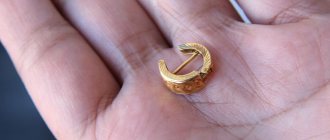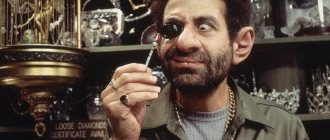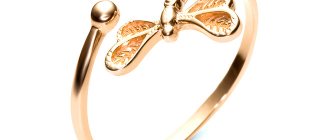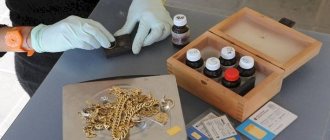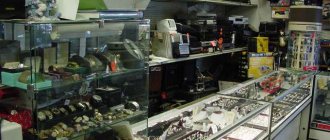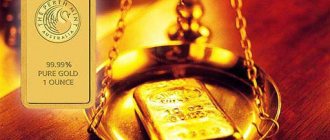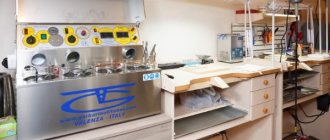A pawnshop is an institution that issues loans to citizens secured by their property. A characteristic feature that distinguishes a pawnshop from other credit organizations is that the borrower, having handed over his item to the pawnshop and received a small loan for it, can get it back and buy it back within a specified period. The pawnshop will sell the unredeemed item to other people in order to return the money lent to the former owner of the ring or car.
Pawnshops are perhaps the most ancient forms of financial activity and have a rich history. It may come as a surprise to learn that historically, pawn shops emerged as an alternative to usury and were originally created with the best of intentions and charitable intentions.
We owe our pawnshops to the Medici family.
The symbol of the pawnshops - three golden balls - refers to the family coat of arms of the Medici, who owned the province of Lombardy. Actually, the name of the credit offices that give loans to citizens secured by their movable property comes from the name of the region in Northern Italy. In the modern world, this mark is the hallmark marking of jewelry in Europe, which means that the product can be accepted at any pawnshop, being a sign of the high quality of the product.
In Russia, during the period of the spread of Christianity, monasteries and church parishes were actively involved in usury. As the church grew richer, interest rates on loans also increased. And parallel to them - the discontent of the population. Therefore, by decree of Tsarina Anna Ioannovna in 1729, a state credit institution like a pawnshop, the Coin Office, was created for the first time to combat moneylenders.
By royal decree, she was “commanded to issue loans to those who wish, secured by gold and silver items, in the amount of 1/4 of their value, out of 8% per year.”
Later, under Elizaveta Petrovna in 1754, the Loan Bank was created, which issued loans secured by jewelry. And the first state-owned pawnshops in the Russian Empire were the St. Petersburg and Moscow loan treasuries, opened in 1772 under Catherine II.
Since 1838, a company operated in St. Petersburg for the storage and pledge of movables and goods, issuing loans for up to 12 months, in the amount of 1/2 of the assessment made by it, for 1% per month and 1% for storage. All these institutions were state-owned pawnshops.
With the development of capitalism at the beginning of the 19th century, private pawnshops began to appear in Russia, and already in 1904 there were 12 joint-stock pawnshops in the country, 77 city and municipal ones. And by 1916, the number of joint-stock pawnshops increased by 92%, city ones - by 42%. State-owned pawnshops remained in the same number.
Pawnshops during the USSR
1917 brought the collapse of the entire banking system of the Empire - the banking sector was nationalized. At first, this did not affect pawnshops. But by 1919, the Petrograd and Moscow loan treasuries, as well as the city pawnshops, were liquidated. The same fate awaited private traders.
Only in 1924, the first pawnshops reopened for a short period on the territory of the USSR: the People's Commissariat of Finance, needing to attract funds to the treasury from the population, published a Resolution on the establishment of the Moscow City Pawnshop. However, the monopoly position of these organizations has developed a persistent negative perception of them among the population due to long lines, ridiculous prices for goods sold, and inadequate valuation of products.
During the Great Patriotic War (1941-1945), pawnshops again disappeared from the country's economy, and returned only with Gorbachev's Perestroika in the 80s of the last century. Until the collapse of the USSR in the 90s, they still had state status.
From the first days of “Russian capitalism,” pawnshops began to grow throughout the country like mushrooms after rain, and their activities were controlled everywhere by semi-criminal elements.
Changes in legislation for pawnshops in 2021
In July 2021, amendments to Federal Law N196-FZ “On Pawnshops” will come into force in full.
The changes set out in Federal Law No. 196-FZ of July 13, 2020 are carried out in three stages.
First stage
October 12, 2021 - the first and main part of the changes to the Federal Law “On Pawnshops” came into force. Its essence is as follows:
- The name of a pawnshop may not include the word “pawnshop.”
- It is prohibited to attract funds from individuals and individual entrepreneurs. The exception is shareholders or participants of the pawnshop.
- The pawnshop's opening hours have been increased to 11:00 p.m. (previously until 8:00 p.m.).
- Pawnshops are permitted additional types of activities: OKVED 68.20.2 (Rental and management of own or leased non-residential real estate) and OKVED 66.19. (Group “Other auxiliary activities in the field of financial services, except insurance and pensions”). The Central Bank does not supervise new types of activities.
- The Bank of Russia regulates the activities of pawnshops and supervises only the provision of short-term loans to citizens secured by movable property owned by the borrower and intended for personal consumption.
- The amount of the loan provided cannot exceed the amount of the value of the pledged item.
- Interest for the use of the loan is accrued up to and including the date of its repayment (with the exception of repayment of the loan on the day of its issuance).
- It is possible to sell an unclaimed item without a mandatory auction procedure if the valuation amount of such an item does not exceed 300,000 rubles (the amount has increased 10 times - it was 30,000 rubles).
- Bidding for the sale of unclaimed items can only be open.
Second phase
The amendments, which entered into force on January 11, 2021, contain new grounds for inclusion and exclusion from the register of pawnshops. Pawnshops must send an application to the Bank of Russia to enter information into the state register and provide the necessary documents for this.
If existing pawnshops do not submit documents to enter information into the register, then from April 10, 2021, their activities will be limited, and if information about the organization is not included in the register according to the new rules before July 9, 2021, then it will lose its pawnshop status.
Third stage
From July 10, 2021, the conditions regarding the form of the deposit ticket will change. Thus, the regulator hopes that by the end of this year the amendments will increase the level of transparency of the pawnshop industry and protect the interests of consumers.
What is a pawnshop? How does he work?
The very word “pawnshop”, the operating principle of such an organization and, in general, the first loans came to European culture from the north of Italy. At that time, all of Europe strictly followed the canons of Christianity, which, by definition, closed the way to moneylenders. Only Jews and Lombard banks ignored these guidelines. They were located, respectively, in Lombardy, between Venice and Milan .
This is how the word “pawnshop” entered the Russian language. This word, both then and now, was used to refer to a lending system where the borrower was given the requested amount against a valuable collateral and interest. After repayment of the debt and payment of interest, the collateral was returned to the borrower in its value and safety. For two thousand years, the principle of operation has not changed.
A pawnshop must necessarily take movable property (valuables like jewelry, art objects, expensive equipment), and not real estate. The client has the right to return the item if he repays the debt and pays interest. Thanks to such conditions, the organization receives security for the loan in case of non-repayment, and the client has the motivation to avoid delays.
In Russia, the governing legal acts in this area are the Federal Law of July 19, 2007 “On Pawnshops” and the Federal Law “On Consumer Credit (Loan)”. In particular, the following restrictions are established:
- A pawnshop can only be a legal entity;
- The name of the organization must contain the word “Pawnshop” in such a context that potential clients immediately understand the direction of work of this organization;
- All pawnshops have the right to carry out their activities only if they are included by the Central Bank of the Russian Federation in the appropriate state register;
- If an organization accepts an item as collateral under a loan agreement, it will also be required to properly store the item until the loan agreement is terminated.
The operating principle of pawnshops
At its core, a pawnshop is a type of usurious activity. The credit institution issues small short-term loans for a period of up to 365 days secured by movable property. The borrower must purchase this property before the expiration of the contract period. If this is not done, the pledged item will be sold, and the money will remain with the creditor to account for your debt.
When there is no money to repay the loan, but you don’t want to part with the value, you can enter into an additional agreement with the pawnshop, which will allow you to pay interest and postpone the repayment of the principal amount to some time specified in the additional agreement.
How does a pawnshop work:
- You go to the office with your personal valuables and passport.
- A professional expert evaluates your item and announces the amount he is willing to pay for it. On average, this amount is 40-80% of the market value.
- If you agree to all the conditions, a storage agreement is drawn up with you - from 1 day to a year.
- For borrowed funds, the contract must indicate the interest rate, which can be 0.2-10% per day. The basic amount for calculation is from 1 thousand rubles.
- At the end of the period specified in the contract, you must pay the total amount of the deposit and interest.
- If you cannot pay the full amount and do not want to lose your value, then you can enter into an additional agreement with the pawnshop. By paying interest, you extend the period that your item will be kept in the pawnshop. The organization does not have the right to sell it during this period, but is obliged to store and even insure your item at its own expense.
The secured loan form contains the following information:
- personal data of the person to whom the cash is given;
- information about the pawnshop that issues cash;
- loan amount;
- interest rate;
- description of the value pledged;
- date and address of the deposit collection point.
IMPORTANT.
After the expiration of the period specified in the contract, the client either redeems his item or enters into an additional agreement and pays interest. If this does not happen and the client has nothing to pay, the pawnshop sells the unredeemed property: it sells the item independently or at auction, but not earlier than a month after the end of the contract.
Expensive products, valued at more than 300 thousand rubles, are usually sold at an open auction for the maximum amount offered. If the pawn shop sells your item for less than the appraised value of your pawn plus interest, the debt will still be considered discharged. If it sells for more, you have the right to contact the pawnshop with a demand to return the difference to you. Such a request can be sent to the pawnshop within three years from the date of sale.
How is the cost of pawnshop services determined?
The key selection criterion is financial. People are interested in how much the services of a bank, microfinance organization or pawnshop will cost.
What is the cost of a loan from a pawnshop?
No. 1. Loan amount
This is part of the real value of the item being pledged. Usually we are talking about 50-80% of the market price. The appraisal is carried out by a pawnshop employee; in some places the price is higher, in others it is very cheap.
To return the collateral, the borrower needs to repay the loan amount + interest.
No. 2. Interest on borrowed funds
Maximum rates for pawnshops in 2021
The maximum value of this indicator is determined by the Central Bank. The rate is published on the official website in this section.
The average market values of the total cost of the loan given on the page are addressed to different categories of credit institutions, which include pawnshops.
The pawnshop does not have the right to charge its own commissions and payments, or to fine the borrower for delays. The client can appeal such violations to the Central Bank of the Russian Federation.
No. 3. Storing things
This is a separate independent service of pawnshops. The organization has specially equipped storage rooms, which are often empty.
An example of such a service is seasonal storage of fur items or antiques. The owner does not need a fur coat for most of the year. It is easier to give the item for storage to a pawnshop, where optimal conditions are provided - humidity not higher than 65% and temperature below 4 degrees. Plus things will be insured.
Receiving the service is accompanied by a number of mandatory formalities. The first and main one is issuing a personal safe receipt to the client. The document confirms the validity of the storage agreement.
The receipt includes the following details and information:
- the name of the pawnshop and its address;
- Full name and passport details;
- characteristics of the thing being transferred for storage, name, valuation;
- date of transfer of the item to the pawnshop;
- contract time;
- storage conditions;
- cost of providing services;
- payment procedure.
Storage services are not controlled by the Central Bank, but products made of precious metals are kept in safe deposit boxes or special metal boxes. The price list with prices is developed by the pawnshop employees without any restrictions.
The pawnshop receives the right to sell the item transferred for storage after two months from the date of expiration of the contract. Until this time, the client can repay the debt for the service and take back the property.
Types of pawnshops
Pawnshops differ in the type of collateral:
Jewelry pawn shops
The most common and popular collateral is jewelry and items made of gold, platinum or silver. For a gram of precious metal, a pawnshop will give you much less money than what is indicated on the receipt for the sale of the item, because for the pawnshop this metal is scrap. Unfortunately, you won’t be able to sell your item at the price of the item at a pawnshop. In addition, the jeweler will take into account the wear and tear of the item: the more damage it has, the less you will receive.
A professional expert will evaluate your collateral in a pawnshop in a few minutes using special reagents and equipment. Jewelry pawnshops are subject to additional requirements: they must be registered with the Assay Office. You can check the right of a pawnshop to accept jewelry in the register of legal entities and individual entrepreneurs carrying out transactions with precious metals and stones.
Antique pawn shops
Not all old things can be called antiques - in most countries it must be something that is over a hundred years old and has historical, artistic or scientific value. The specificity of the work of such pawnshops is a thorough examination, which may take some time. In this matter, not only the high professional level of the appraiser is important, but also his instincts and knowledge of market conditions at the current moment in time.
As collateral in such a pawnshop, you can leave ancient coins, seals, rare manuscripts, books, paintings, figurines, engravings and souvenirs, as well as ancient household items - for example, dishes. Antique items are accepted as collateral only if the owner has an appraisal certificate or documents about their origin.
Pawn shops of household appliances
You can put your mobile phone, household appliances, computer or TV there. However, it is worth remembering that even for new equipment you will not be given more than a third of its original cost.
Fur pawn shops
They evaluate and take natural fur products as collateral. There they check the degree of cleanliness of the fur, the absence of tears, and also take into account the presence of bald spots and damage to the fur during the assessment. If there are such defects, then you may be refused: fur products without damage, in good condition and preferably of a modern cut are welcome.
Car pawnshops
They have become popular in the last few years. The essence of their work is simple: a loan is issued to the client against the security of a vehicle. It can also be a motorcycle, boat, snowmobile, construction equipment - anything that moves on wheels, on water or flies.
Keep in mind: the pawnshop will definitely check your vehicle to see if it has already been pawned in another place and whether it has been seized by the bailiffs. Does the car belong to a person for whom external management was introduced during bankruptcy proceedings? If everything is in order with your car, then the equipment is either parked or can be left for the owner’s use.
For using a loan, the client pays the pawnshop a certain percentage of the loan amount. And if the owner does not repay the loan and interest on it on time, then the collateral becomes the property of the pawnshop and is sold at market value.
A pawnshop is a way to borrow money using personal property as collateral.
But you must understand that you will not get its real price for this item - what it would have been if sold, and you will have to pay interest on the loan from the pawnshop. And if you miss the repurchase period by a month, then you will have to say goodbye to the item.
What rights does a borrower have when collaborating with a pawnshop?
The responsibility of the client of the credit institution is clear - to repay the loan on time and with interest. List of his rights under the law:
- return of the pledged item at any time until it is sold;
- receiving insurance compensation in case of damage or loss of property;
- payment only for the loan amount and interest on it. The remaining services - assessment, insurance, storage - are paid by the credit institution;
- obtaining information about the sale price of the collateral;
- compensation for the difference between the loan and the sale price, if there is revenue;
- confidentiality, compliance with requirements for the circulation and storage of personal data;
- receiving a pledge ticket and, if issued, a loan agreement;
- appealing violations to the Central Bank of the Russian Federation.
What can't be pawned at a pawn shop?
Each pawnshop has its own list of items that are not accepted as collateral. But there is also a common stop list for all pawnshops of things that Russian legislation prohibits from pawning and storing in pawnshops. In this list:
- poisons and things with high background radiation;
- cold steel and firearms - even if you have permission to carry and store them: Law No. 150-FZ allows them to be sold and purchased only by institutions with special licenses;
- signs of military valor - medals, orders, etc. (criminal liability is provided for under Article 324 of the Criminal Code of the Russian Federation);
- jewelry and cultural and historical values that are included in a special list approved by the state;
- food products.
Pawnshop and microfinance organization
At their core, a pawnshop and a microfinance organization are two sides of the same coin. They issue small microloans for a short period of time. However, despite the single essence - usury - pawnshops still provide more benefits to customers.
The undoubted advantages of pawn shops over microfinance organizations:
- low, unlike MFOs, interest rates;
- a wider range of mortgaged property than in MFOs;
- more flexible loan repayment terms;
- the pawnshop has no claims and legal consequences for the client if he cannot repay the borrowed funds.
IMPORTANT.
MFOs have the right to raise money from private investors - if the company is registered in the form of an IFC. But pawnshops face criminal liability for this activity!
Pawnshop and consignment store
Thrift stores are often disguised as pawn shops. If you don't know the difference between them, you can face unpleasant consequences. Thrift stores acquire - that is, they buy used property from people with the right to buy it back. However, the pawnshop issues a pawn ticket to the client and does not have the right to sell his item until the expiration of a certain period specified in the contract - plus 30 days of guaranteed storage of the pawned item.
Thrift stores can sell your “collateral” at any time, since for this organization your item is not legally collateral. You risk simply losing your property.
To prevent such consequences, first make sure that you want to pawn your item so that you can return it later, and not sell it forever to a consignment store.
To find out that this is a pawnshop, look in its documents for the type of activity (OKVED) of the legal entity.
In 2021, the difference between a thrift store and a pawn shop is
The main type of economic activity of pawnshops:
- 64.92.6 - Activities for the provision of short-term loans by pawnshops secured by movable property.
Additional:
- 66.19.5 — Provision of services for the storage of valuables, depository activities.
- 70.22 — Consulting on commercial activities and management.
- 68.20.2 - Rent and management of own or leased non-residential real estate.
- 66.19. — Group “Other auxiliary activities in the field of financial services, except insurance and pensions.”
What is the point and benefit of going to a pawnshop?
The basic principle of operation is the issuance of money exclusively on bail. The amount issued is always lower than the actual cost of the item. Therefore, the deal is beneficial for the credit institution.
Two important advantages for a potential borrower.
- Efficiency. Even microfinance organizations are not able to compete with pawnshops in this indicator - they don’t count the scoring score and don’t ask for “any income certificate.”
- Minimum formalities. In fact, they are limited to the execution of two standard documents - a pledge ticket and a loan agreement. Filling out the prepared forms takes 2-3 minutes.
